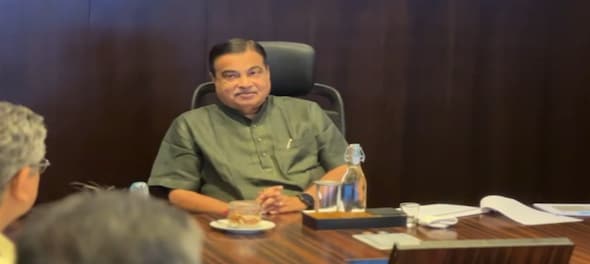
Union Minister for Road Transport and Highways Nitin Gadkari, on January 16, blamed the rise in traffic accidents happening in India on the declining quality of engineering graduates in the country and poor project planning by them.
"Road safety is a very serious concern in India. The quality of DRPs (detailed project reports) for road projects has fallen in the last few years and while people want to blame drivers, I think road accidents happen because of engineers," Gadkari said while addressing the CII National Conclave on "Road Safety - Indian Roads@2030 - Raising the Bar of Safety.
"The main problem is road engineering and defective planning, and defective DPRs," he said, adding that the government will work towards reducing road accident deaths by 50% by 2030.
The latest road accident reports revealed that in 2022 India witnessed 460,000 road accidents, 168,000 deaths, and around 400,000 serious injuries.
Moreover, there are 53 road accidents every hour and 19 deaths in India. This reflected the urgent need for comprehensive safety measures to be taken up by all concerned authorities.
Gadkari also added that there had been a 12% increase in road accidents and a 10% rise in road accident deaths, resulting in a socio-economic loss of 3.14% to gross domestic product (GDP).
Road accident reports also found that an alarming 60% of deaths occurred among the young age group of 18 to 35 years.
He also emphasized the four crucial 'E's of road safety: engineering, education, enforcement, and emergency medical services.
"Accident Death is loss of bread-earner in a family, professional loss to employer, and overall loss to the economy," the minister said.
Gadkari urged the industry and government to collaborate on solutions to prevent road accidents, emphasizing the importance of education in building safer infrastructure and promoting safer driving habits.
He also highlighted the need for stronger law enforcement and responsive emergency medical services. Addressing a driver shortage of 2.2 million in the country, the minister encouraged the industry to initiate training programmes for new drivers to enhance road safety.
The minister highlighted the positive outcomes of implementing a system of rewards for good traffic behaviour. He urged regular eye check-ups for drivers, encouraging organisations to create free camps as part of their corporate social responsibility.
Gadkari also emphasised that education and awareness involving schools, colleges, NGOs, start-ups, technology providers, IITs, universities, and traffic and highway authorities are crucial for spreading good practices in road safety.
In November 2023, the International Road Federation (IRF) submitted a proposal to the government to remove the 18% goods and services tax (GST) charged on helmets. This move is an attempt to encourage two-wheeler riders to wear helmets.
In 2022, More than 70% of road accident deaths were among two-wheeler riders, and around 50,029 people who died were riding two-wheelers without helmets.
Earlier this week, Gadkari had announced that the National Highways Authority of India will deactivate FASTags with valid balances but with incomplete KYC by banks post-January 31, 2024.
To enhance the efficiency of the electronic toll collection system and provide seamless movement at toll plazas, NHAI has taken the 'One Vehicle, One FASTag' initiative that aims to discourage the use of single FASTag for multiple vehicles or linking multiple FASTags to a particular vehicle.
NHAI said in their statement that this new rule of KYC has been imposed after they received data if multiple FASTags issued for one vehicle, or one FASTag being used for multiple vehicles, not complying with the RBI guidelines.
Apart from this, FASTags are sometimes deliberately not fixed on the windscreen of the vehicle, resulting in unnecessary delays at toll plazas and causing inconvenience to fellow national highway users.
Check out our in-depth Market Coverage, Business News & get real-time Stock Market Updates on CNBC-TV18. Also, Watch our channels CNBC-TV18, CNBC Awaaz and CNBC Bajar Live on-the-go!


Lok Sabha Election 2024: I.N.D.I.A. bloc to hold rally at Mumbai's BKC today
May 17, 2024 5:18 PM
In Ayodhya, voters talk of a promise fulfilled and yearning for development
May 17, 2024 2:10 PM
Fight of heavyweights in Sambalpur where farmers, weavers hold the key
May 17, 2024 12:25 PM
Odisha: Fight of heavyweights in Sambalpur where farmers, weavers hold the key
May 17, 2024 10:22 AM

